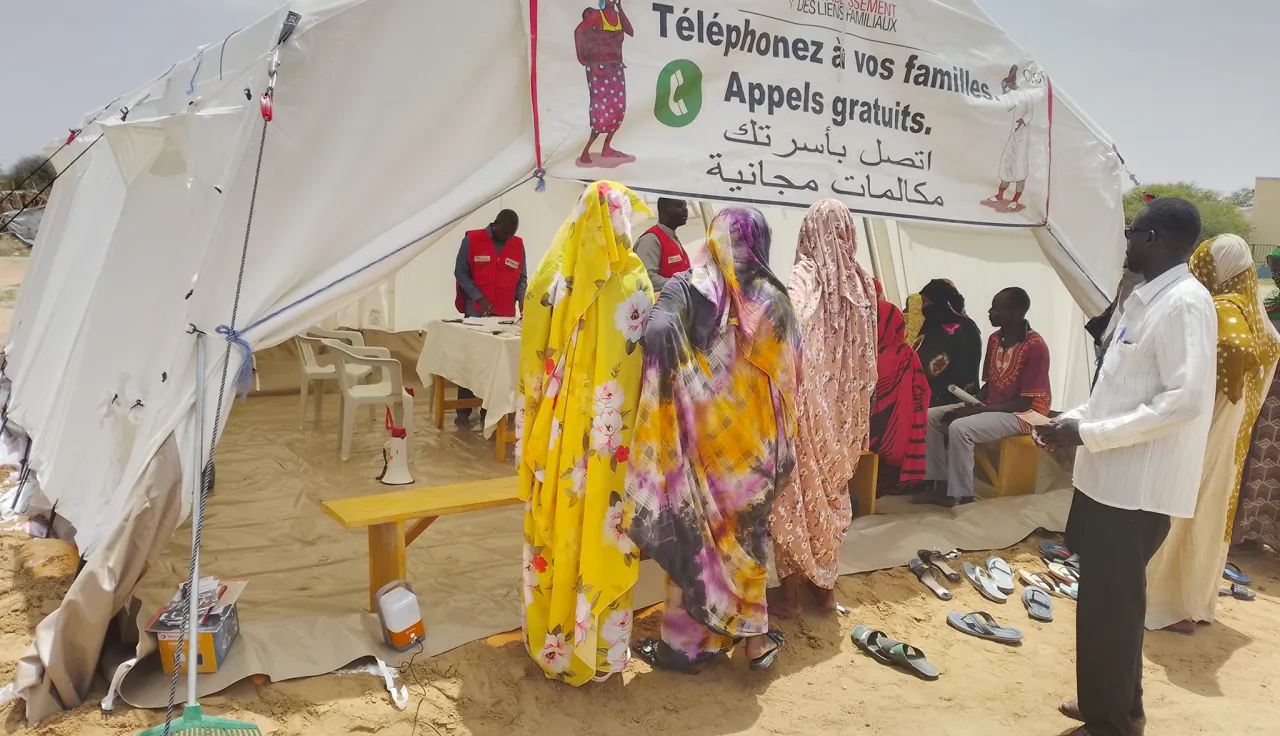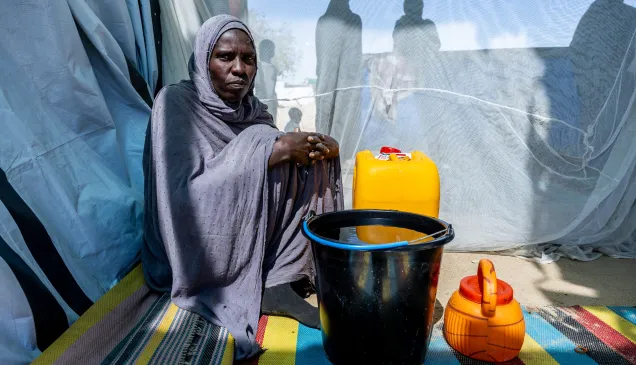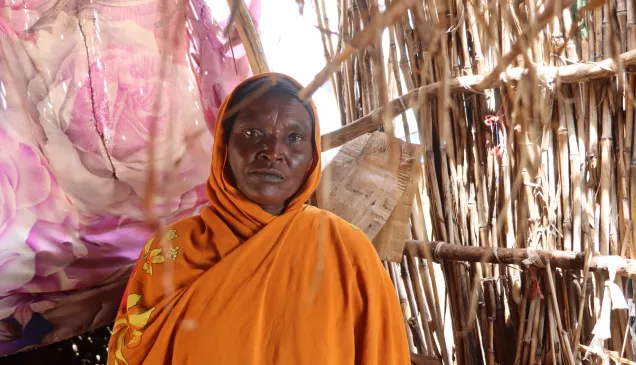"With the chaos in Khartoum, I stopped getting news from my family. I've hardly slept for the past four months," said Khadidja,* a 37-year-old from Sudan who has been living in Zabout refugee camp since the end of April. Khadidja was able to make calls thanks to the Red Cross teams. "I finally managed to get in touch with my younger brother who's in Khartoum with my parents. He told me that my other brother fled for Egypt. His son is here with me, and at last I've been able to tell him that his father is fine."
These successes include the dozens of wounded people in Chad who have been able to reconnect with their families. Patients in health facilities in Adré, Abéché and N'Djamena have made a total of 56 phone calls. Red Cross teams have also registered more than 20 non-accompanied minors as part of the process to find their families.
There are more than 350,000 Sudanese refugees in Chad and most of them have no news about one or more members of their family. As the violence in Darfur continues unabated, the ICRC believes that the number of people unaccounted for could rise in the coming weeks, particularly given the huge numbers of people being displaced. Around 37% of the calls so far have been successful, but thousands of families still have no idea what happened to their loved ones. Most of those who fled to Chad are women and children, and they have no information about their husbands, sons, fathers or brothers. Like many women, 29-year-old Mariam* has not heard from her younger brother since June.
"I think he's in a village near El Geneina. It's too risky to go and look for him right now because there's frequent fighting. I have no idea how to contact him. I just want to know if he's alive."
Communication remains a major challenge in Sudan. Means of communication are unstable, which is complicating communication with Darfur, and carrying out searches is being further hindered by rainy season floods. In addition, many displaced families have little or no money. To support families, Red Cross teams have set up branches in the Djabal and Zabout refugee camps, and in Adé, in Sila region, and in Gaga and Farchana, both in Ouaddai region.
"Thanks to the efforts of the Red Cross teams, we have already been able to help hundreds of families, but there are so many people who need our help and we are cruelly lacking the resources to respond," explained Dan Rukeba, who leads the ICRC's protection work in Chad.
"Thanks to our partnership with the Red Cross of Chad, we have been able to train more than 30 volunteers to help with the search efforts, but every day more and more families are arriving. They don't know if their loved ones are still in Sudan, if they escaped or if they are dead or alive. Not knowing only adds to people's suffering, and they're already traumatized by the violence."
With limited resources to respond to the growing humanitarian needs in eastern Chad and Sudan, the ICRC is appealing to its donors to give generously. Finding out what happened to those who are missing is imperative if we are to end the suffering and uncertainty that these families are enduring.
* Names have been changed to protect identities.
For further information, please contact:
Lucien Christen, ICRC Dakar, tel: +221 7818 646 87, lchristen@icrc.org
Aylona Synenko, ICRC Nairobi, tel: +254 716 897 265, asynenko@icrc.org




